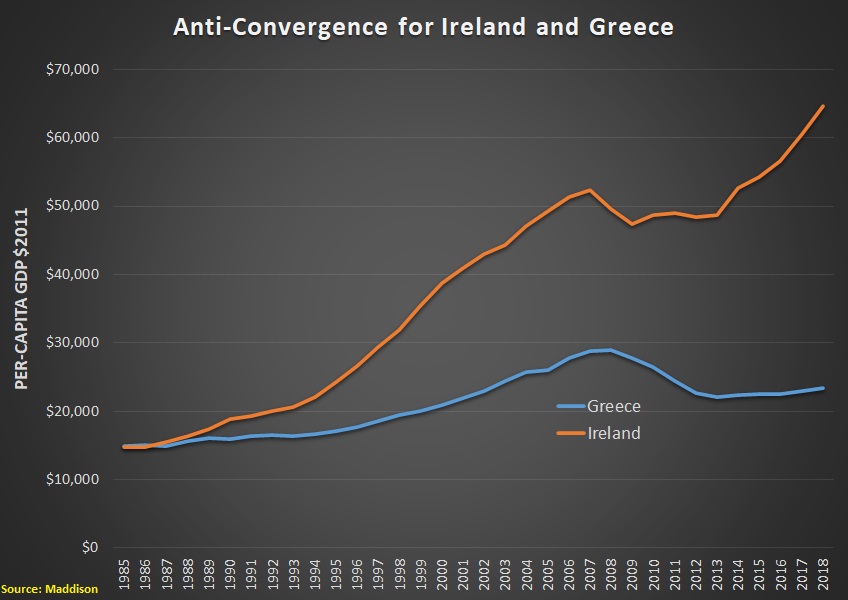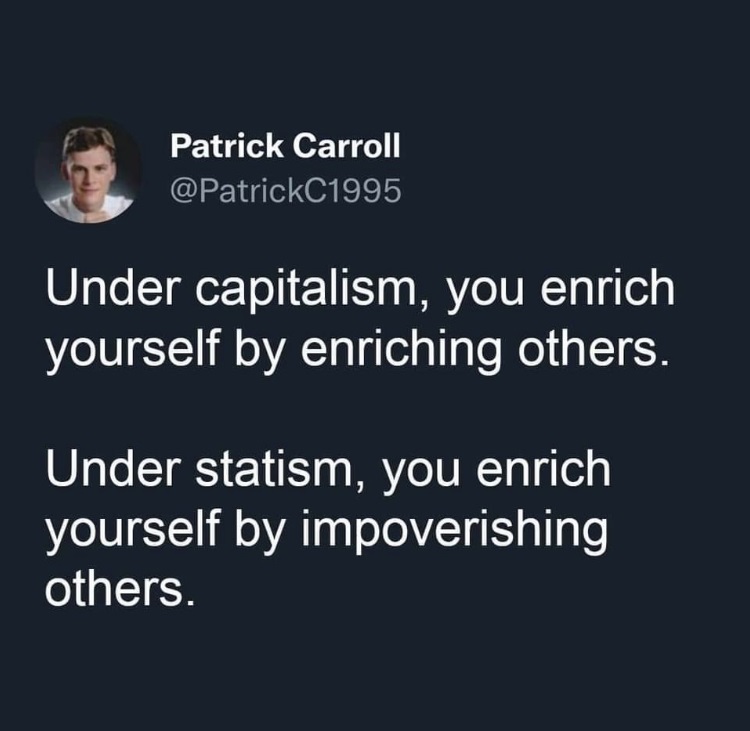I have shared five videos (Part I, Part II, Part III, Part IV, and Part V) that make the case for capitalism.
Here’s a sixth example.
The video notes that poverty was the natural condition for humanity (notwithstanding the economic illiteracy of Congresswoman Pressley).
But then, starting a couple of hundred years ago, capitalism gained a foothold and – for the first time in world history – there were nations with mass prosperity.
We learn about how various places became rich, including the United States, Hong Kong, and New Zealand.
The narrator also pointed out that Ireland experienced a period of dramatic market-driven growth.
Which gives me a good excuse to make the following comparison, which shows the dramatic divergence between Ireland and Greece beginning in the mid-1980s.
Why the stunning divergence (one of many examples I’ve collected)?
Ireland controlled spending and cut tax rates and now routinely ranks among the nations with the most economic liberty.
Greece, by contrast, has imposed more and more government over time.
Let’s close with this tweet, which nicely summarizes Walter Williams’ famous observation.
P.S. This comparison of Sweden and Greece also makes the key point about the superiority of markets over statism.
P.P.S. Don Boudreaux and Deirdre McCloskey have must-watch videos on how capitalism enabled (some) nations to escape poverty.


[…] Part VI […]
[…] City University of New York did not say that free markets are bad. He didn’t even say that capitalism is bad. Or that classical liberalism is […]
[…] series making the case for capitalism (Part I, Part II, Part III, Part IV, Part V, and Part VI), and I’ve shared lots of long-run datashowing how some peoplebegan to enjoy unimaginable […]
[…] series making the case for capitalism (Part I, Part II, Part III, Part IV, Part V, and Part VI), and I’ve shared lots of long-run data showing how some people began to enjoy unimaginable […]
[…] And here’s another video on the link between free markets and […]
[…] warm and fuzzy feelings for “capitalism” turn sour when someone promotes a modified version such as “common-good […]
[…] warm and fuzzy feelings for “capitalism” turn sour when someone promotes a modified version such as “common-good […]
[…] warm and fuzzy feelings for “capitalism” turn sour when someone promotes a modified version such as “common-good […]
[…] The Case for Capitalism, Part VI […]
As a contrarian, I can imagine the “slips between the cup and the lip.” For example, in each comparison, which country obeys the law? Put another way, which country has the bigger underground economy? Is there a scale for comparative happiness? Which country gets/got away with more international subsidies, say, from the EU, or the UN, or the OECD, or IMF, or the World Bank, or U.S./country foreign aid? The dole system is ecumencal.